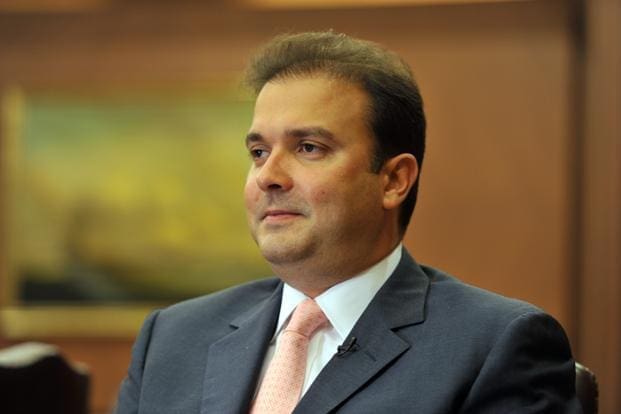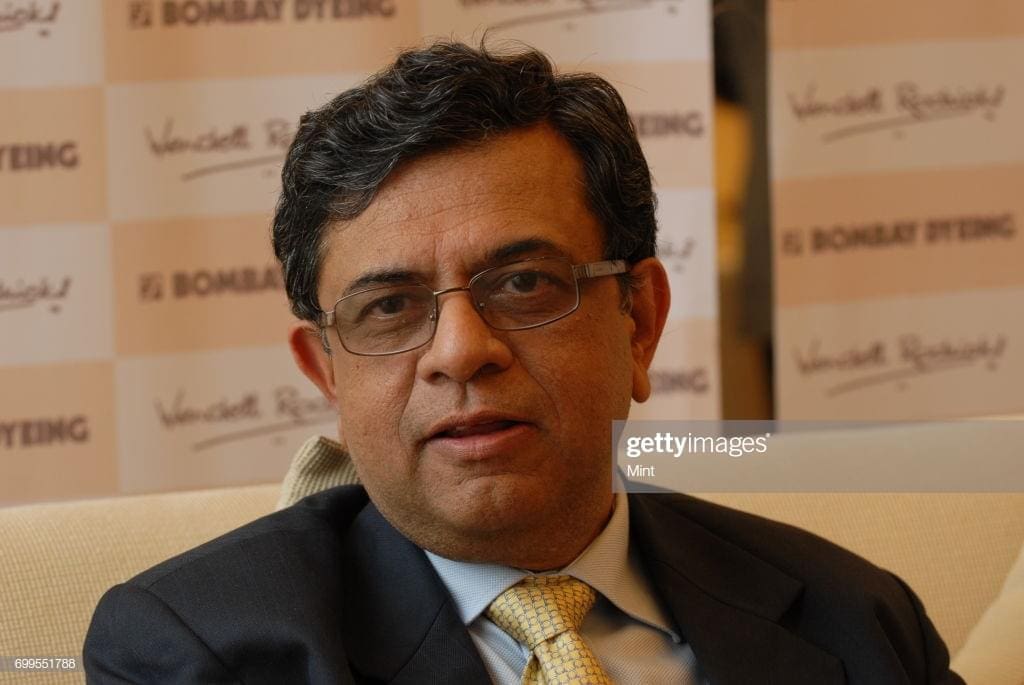Bombay Dyeing and Manufacturing Co Ltd. was established by Nowrosjee Wadia in 1879, as a very small operation. The Company dip dyed Indian spun cotton yarn and dried it in the sun in three colours; turkey red, green and orange. From such modest beginnings, over the last 133 years, Bombay Dyeing has transformed themselves into one of the most reputed and esteemed establishments in India.
Bombay Dyeing is the flagship company of the Wadia Group, a multi-product conglomerate with turnover in excess of 1.5 billion dollars and employee strength of 20,000 people. Some of the well known group companies include Britannia, Go Air, Bombay Dyeing, Bombay Realty, Bombay Burmah and many more. In January 2009, Bombay Dyeing & Manufacturing Company acquired the shares of White Horse Real Estate Company at face value and consequently it became a 100% subsidiary of the company.
The Indian textile industry is one of the oldest and prominent players in global textile industry. Currently it is a $52 billion industry and is anticipated to grow to $115 billion by 2012. India accounts for 25% of the world yarn exports and it also accounts for 12% of the world’s production of textile fibres and yarn. Companies like Bombay Dyeing play a tremendous in India’s growth.
 Mr. Nusli Wadia , Chairman Wadia Group
Mr. Nusli Wadia , Chairman Wadia Group
Textile manufacturing is the main activity of Bombay Dyeing with 5 manufacturing facilities confirming to international standards. Bombay Dyeing is country’s largest exporter of home textiles. Bombay Dyeing’s production is exported to USA, Canada, UK, Germany, Netherlands, Italy, France, Poland, Czechoslovakia, New Zealand, Switzerland, and many more countries. Presently, Bombay Dyeing has a distribution chain of over 600 exclusive stores across the country.
Mr. Jehangir Wadia , MD of Bombay Dyeing 
Bombay Dyeing’s product range encompasses various categories of home furnishing, premium and stylish bed and bath linen, suiting and shirtings. Let us take a brief look at their products:
Chemicals: Bombay Dyeing is the largest manufacturer of Dimethyl Terephthalate (DMT) in India. It has a capacity to manufacture 1,65,000 tonnes per annum (TPA). DMT is raw material for manufacturing polyester fibre, film, filament & yarn and engineering plastics.
Polyester Staple Fibre (PSF): PSF is manufactured from 100% Virgin Polymer from continuous polymerisation plant. Product range from PSF includes micro fibres, semidull/ optically white/ dopes dyed black/ Hollow/ Super High Tenacity and trilobal products mix, amongst others.
The entire gamut of textile products includes:
Bedding range: Bed sheets, bed covers, quilts, duvet covers, dohars, bed-in-bag sets, blankets, pillow cases, cushion covers and shams
Bedding accessories: Cushions, pillows, duvets, comforters, diwan sets and bed décor sets
Bath linen: All types of towels for all purposes, bath robes and bath mats
Hotel linen: Twills, dobby weaves, satins, jacquards, high-thread-count-sheeting and satin fabrics
Industrial fabrics: microdot interlining fabrics for shoe uppers, adhesives, abrasives and leather cloth.
All Bombay Dyeing products are manufactured to the highest quality standards. The company has stood the test of time on the basis of the wide range of high quality products that it offers to the consumers. It also creates the widest range of designs and offering with more than 1000 designs per year that are unmatched by any other company in its category and is the ultimate destination for the latest trends in the industry.
Bombay Dyeing holds undisputed leadership in its category since its inception. The vision of the 1st generation created by Nowrosjee Nusserwanje Wadia, is being continued thru generations with the 2nd generation of Sir Ness N. Wadia, 3rd generation of Neville N. Wadia, 4th generation of Nusli N. Wadia and the 5th generation of Jeh Wadia and it will indisputably continue with even more fervour. It is a Legacy of over 130 years, driven by the vision to excel. It is an enterprise that generates sustainable value on the strength of trust and transparency.
We had a chat with the affable Mr. Durgesh Mehta, Jt. Managing Director & CFO of Bombay Dyeing regarding the Company & its affairs.
TVC: Bombay Dyeing is a leader in home textiles segment and has ruled at the top for many years. However recent impressions of the Company not much being very active in the textile industry are doing the rounds. Our readers would like to know your take on the same.
D.M.: Impressions are actually not correct. Growth of our Company is more than 20% in last year as compared to general market growth rate of 5 % in textile business. We are totally committed to textile business, particularly home textiles. We have recently hired a new CEO who is fully dedicated to expanding retail side of our business by adding number of company outlets. In addition, we are also increasing our focus on large format stores. So our Company is very much keen in expanding textile business and we are absolutely active.
TVC: What is your Company’s current production capacity?
D.M.: Our production plant for home textiles is at Rajangaon, near Pune, Maharashtra. Capacity is 50000 lac meters per month. We procure grey fabric from our suppliers and various ancillaries, process it and make final finished products to sell at retail counters.
Our Polyester Staple Fibre (PSF) plant is situated at Patalganga, in Raigad district, Maharashtra has a capacity of 13,000 tones per month & entire product is sold as a commodity in the market.
Our spinning and winding facilities has an installed capacity of 1,35,336 ring spindles and our daily production of fabrics is 3,00,000 meters.
TVC: What is the scenario of the Company’s exports and domestic markets?
D.M.: 90% of our turnover is from the domestic business in our own brand. 10% turnover is from Exports with made- to-order. We do not yet sell our own brand in the international market. We have 400 Exclusive Retail outlets & other 2000- 3000 outlets in India in which Bombay dyeing products are available.
We also have institutional business where we supply to Hotels, Hospitals, schools, charitable trusts and many more.
TVC: What is the current market size & share of Bombay Dyeing products in India?
D.M.: Home textile segment is estimated at Rs. 10,000 crore of industry in India, in which organized sector is only 10 %. In the organized sector, Bombay Dyeing’s India market share is 40%. In the total market (Organized & Unorganized) Bombay Dyeing’s market share is 4%.
TVC: What is your take on branding of PSF; will that improve your profitability?
D.M.: It is an industrial product. It will not impact profitability but will impact innovation in terms of special features and benefits and will increase growth of profit.
TVC: What is Bombay Dyeing’s Business Model?
D.M.: For Our Business Model for Marketing, we follow multiple channels such as: our own retail stores, franchisee stores (which are more successful), large format stores (in recent times) and Multi-brand stores in 2 & 3 tier cities
For our Business Model for Manufacturing we have: dedicated suppliers for yarn, Job work for weaving, direct outsource of fabrics and in-house processing like bleaching, dyeing, value added activity, etc.
Currently, however our focus is on Retailing and marketing rather than manufacturing. Our further plans also include product and design development.
TVC: What are the Company’s plans and reasons for investing in textiles & other industries?
D.M.: We are investing for growth. We want to be closer to the customer and improve our turnover and margins. Our Current turn over for Home textile is Rs. 500 crore, 25 % of total, PSF is 1500 crore, 50% of total. Our current productions utilization capacity is 60%. We are not planning for more manufacturing capacity. However, upgrading production technology is on the cards. We are expanding more on front end, that being Retail. We are planning to expand our retail outlets, building brands, advertising, promotions and more in those lines.
Currently our Company is investing in these 3 business Verticals now: Home Textiles, Polyester Staple Fibre & Real Estate Development.
We are not very keen on concentrating on the international market. We want our domestic established brand to go from strong to stronger. Marketing and brand building activity in international market is very expensive. In international market, we are taking baby steps, small way towards expansion. In the Middle East we sell our brands but we do not have strategic tie up as of now. We do have plans in expanding in furnishings, kitchen, dining linens, shopping bags and more.
TVC: Does your Company or as a matter of fact any company, face any obstacles while putting up projects in India?
D.M.: Approval on conversion of land used to take unduly long time and make projects unviable. Industrialists need to avail services of multiple official agencies which is a major obstacle and results in long delay in completion of projects.
Prompt availability of Infrastructure like power, water and effluent treatment at the right time and pricing is a major hindrance.
Government initiative in TUFS scheme is very attractive. Organizations should be able to get advantage from this scheme. Financial institutes / Banks check the credibility of promoters & owners. Today financial institutes record Textile Industry in the Low Margin but Stable with Lesser Risk profile. So there isn’t much problem getting finances from Banks. Of course, there are companies, individuals who do speculation in raw material in commodity market for Cotton and Yarn prices, where intrinsic margin is very low. But Banks have norms and rules to control risks in businesses.
TVC: How do you foresee the market for your products?
D.M.: There is maximum opportunity in Home textiles. Indian consumer is upgrading themselves from low price, unbranded home linen to branded home linen. Consumer tastes and preferences have changed tremendously and are continuously changing. Consumers want more variety in colour, texture, design and at the same time want value for their money.
TVC: What is Bombay Dyeing’s USP for being competent and competitive for many years?
D.M.: Our brand is known for Quality and Value for Money which includes variety for every pocket, class, age group and education level. Sustaining its quality and novelty is the biggest advantage and challenge for Bombay Dyeing. We have a special design studio where we get designs from leading designer Sabyasachi, Wendell Rodriguez and also have tie ups with other designers. Wadia Group’s USP is that they continually focus on innovation, make competitive products which are relevant to the industry
Shri Durgesh Mehta assured that in a short period of time, with our new CEO on board for our textiles segment, industry and consumers will see amazing improvements in Bombay Dyeing. Bombay Dyeing is a heritage that continues to inspire generations of people across time and we are proud of being a part of it.

